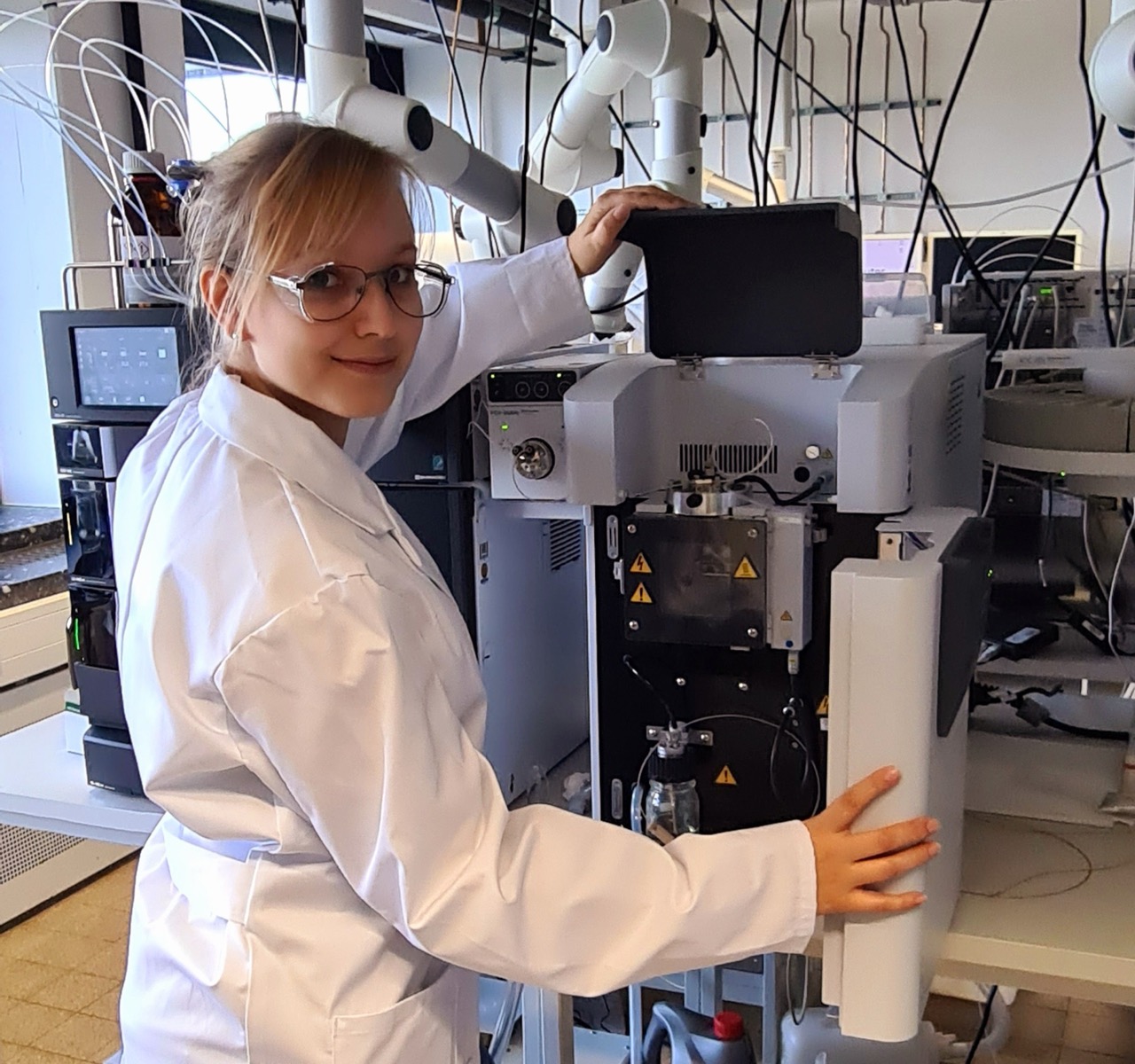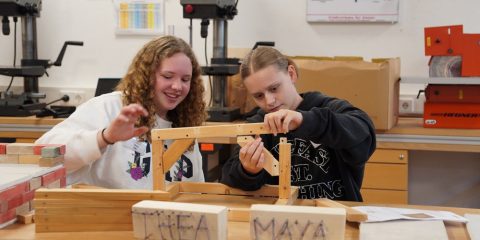
If you ask Pia Münstermann how she got to where she is now, her answer sounds quite simple at first: perseverance and diligence! But the will to succeed is not always enough. It also needs outside support. in the zdi heroine portrait we show Pia Münstermann's path from a student with a great interest in chemistry to becoming a chemical laboratory assistant at the renowned Max Planck Institute for Coal Research.
zdi.NRW shows the way
Interest in chemistry was awakened in the ninth grade by an aha moment in class. When perfume was sprayed in the classroom to illustrate how molecules are distributed in the air, it "clicked". The further course in the direction of chemistry is set by Dr. Beate Schulte, her teacher from the tenth grade. dr Schulte prepares to this day, through close cooperation with the zdi network Mülheim an der Ruhr and the Max Planck Institute for Coal Research, students special experiences in their subject chemistry. "Miss Dr. Schulte knows how to inspire her students and get them involved,” Pia recalls of her school days.

For today's chemical laboratory assistant, these special experiences were, for example, a course in the zdi.NRW funded by zdi.NRW Covestro school laboratory. The student internship at the Max Planck Institute for Coal Research also left a lasting impression: "During this internship I was able to do a lot myself and not just look over my shoulder. That made a lasting impression on me and strengthened my desire to train as a chemical laboratory assistant”.
Pia sees some advantages of an apprenticeship compared to studying: “I have to be able to touch things in order to understand them and not just let them tell me, like in a lecture. In addition, from my point of view, the contact with the teachers was more direct during the training, you could always turn to them with questions.”
The price of diligence
The awards that Pia has already received for her work show that diligence and perseverance pay off. In 2019 she was the winner of the Ernst Haage Prize for trainees, in 2020 she received the IHK best award. "The best honor was my goal, I put up a picture of it to motivate myself," she says. In order to achieve this goal, however, not only diligence and a lot of learning were required: "My colleagues in the apprenticeship supported me a lot. You made it possible for me to take the time to study. And I could always turn to her with questions.”
The Ernst Haage Prize also confirmed that not only the grades but also the social commitment are right. In addition to young scientists, trainees have also received this award since 2009 for their outstanding and above-average achievements. Pia is very happy about this honor: “The trainers can nominate their students here. The fact that I received this award was a very special recognition of my work.”
Pia successfully completed her training as a chemical laboratory assistant two years ago. She is currently taking evening courses to become a chemical technician. She doesn't rule out studying online afterwards, but: "I love my work and couldn't imagine doing anything else." There are also many opportunities for further development and training at the Max Planck Institute. Pia finds the prospect of being able to look after the radionuclide laboratory particularly exciting in the future: "How many people can say they can work with radioactive material?" Pia has a clear goal: "My wish would be that at some point it could be said: 'This drug came from our department.' My work should go in this direction.”
Her tip: practical relevance and a good environment
In her training year, Pia Münstermann was the only female trainee out of five. Although the gender ratio differs from year to year, male trainees are generally in the majority. Pia Münstermann is convinced that practical experience can not only help to make complex topics more comprehensible. They can also help to break down gender stereotypes: "If the girls on site can see: it's fun, it's not just a man's job, then they realize that they can do it too."
But it is also important to have contacts with people who can support you with their specialist knowledge and who can kindle enthusiasm. That's why she's so happy project weeks to be allowed to accompany students and to be a female role model for the students.

zdi girls camp on October 28.10.2022th, XNUMX in Frechen
As part of the zdi heroines October the zdi girls camp will take place on October 28.10.2022th, XNUMX. In the Spotlight discussion, Pia Münstermann and NRW Minister of Science Ina Brandes, among others, exchange views on the upcoming challenges in MINT girls' work. For further information please contact:

Kerstin Helmerdig



